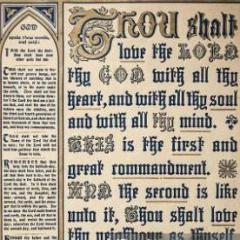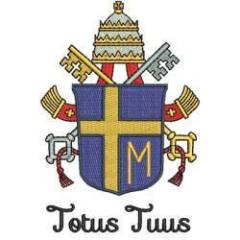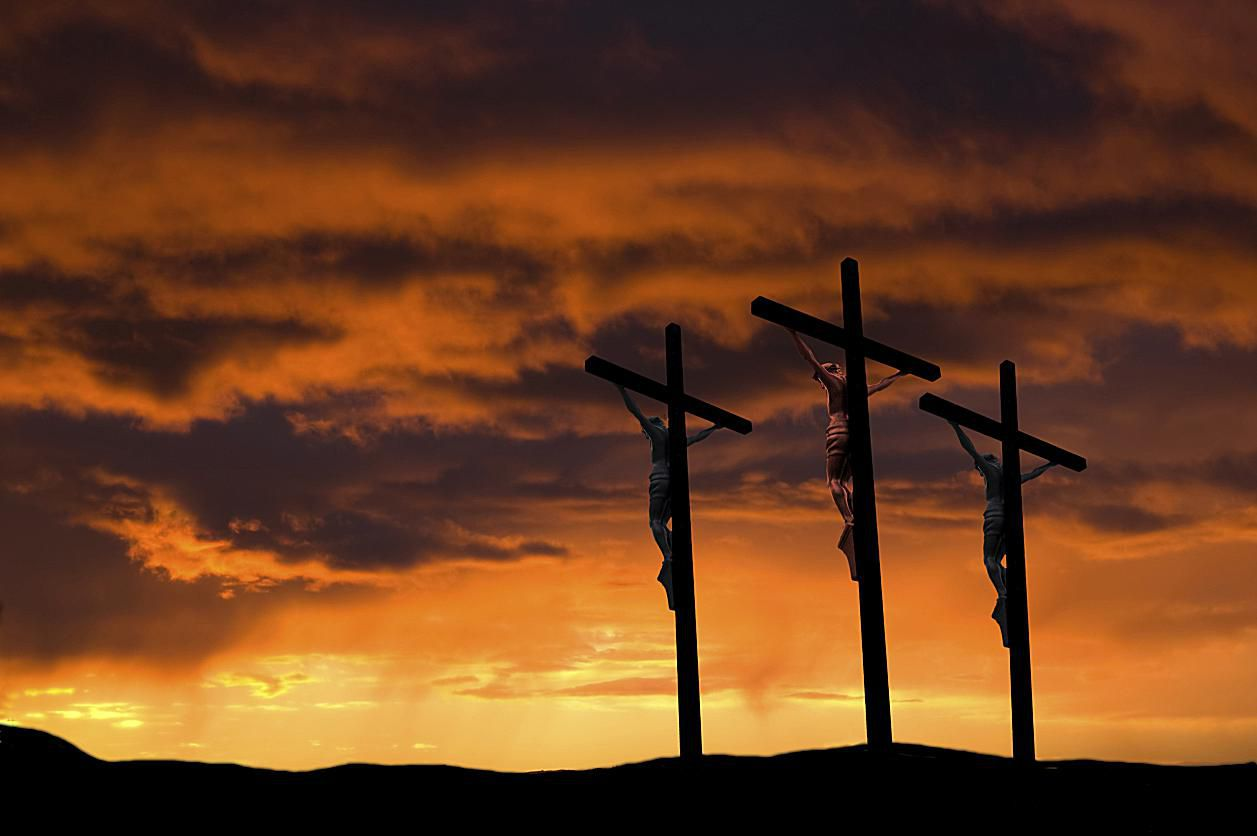All Activity
- Last week
-
The observance of All Souls’ Day has origins in early Christian traditions, where prayers and offerings were made for the dead. The formal practice was popularised in the 10th century by St Odilo of Cluny, a Benedictine abbot, who established November 2 as a day of universal prayer for the departed. On this day, Masses and prayers are offered for our loved ones. People commemorate in different ways. Some attend Mass, visit cemeteries, light candles, or place flowers, as symbols of remembrance and eternal life. Candles represent the light of Christ guiding souls to eternal rest, while prayers are acts of love that unite the living and the dead in spiritual communion. All Souls’ Day falls on a Sunday this year and serves as a touching reminder of life’s brevity and the enduring power of faith, love, and remembrance. As God told Adam, “For you are dust, and to dust you shall return.” (Book of Genesis 3:19). How wonderful it is to be remembered, and especially remembered by those who know us and understand us, and who hold us in their heart, whether these people actually be alive on this earth or whether they have died and are, in some way, still “alive in Jesus Christ.” Somehow their remembrance of us bridges the gap between this life and the next, helping in some way pave the way for us into eternity where we will be welcomed and reunited with those whom we actually know who have died before us. And when it’s done and said, I suspect that many of us will be glad to trade some of the images of heaven – pearly gates and gold-paved streets and the like – simply for a reunion with those who have formed us into the women and men that are Somehow that memory is kept alive, not just by you but by this precious one who has passed from this life to the next, and who remembers you. The other real grace in the church’s remembrance of the faithful departed is in the kindly remembrance of sinners. This day could as easily be called All Sinners Day. By “sin” I mean here a deep brokenness that has deformed who a person truly is or who the person was intended by God to be. Some of life’s brokenness comes from our own actions – things done and left undone, said and unsaid – which have may have had lifelong consequences. Some of this experience of the brokenness of “sin” comes from what has been “done unto us,” or “not done,” “said” or “not said.” And the scarring may be lifelong. Many people depart this life quite broken, not just in body but in spirit. Some people depart this life with no conscious awareness of God’s love for them. Some people depart this life leaving a residue of carnage among their survivors, generation to generation. Everything does not come round right in this life. In the Apostles’ Creed, one phrase in this ancient creed is deeply fraught with hope. We affirm that God the Son “descended to the dead.” An earlier English version says he “descended into hell.” You may find deep comfort in this belief that Jesus will seek him or her out, not unlike a shepherd in search of a lost sheep. And so this may invite prayer from “our” side of eternity: praying for someone who departed this life less than whole, or unreconciled, or deeply damaged in some way. This may be our whispering in Jesus’ ears about someone whom both you and Jesus know. Jesus may even be to you a kind of eternal ombudsperson to listen to your cares or distress or anger or sighing about a departed person, things which could not have been communicated in this life, for whatever reason. You may welcome Jesus to be your mediator between you and another person. Someone asked me recently, “How long should I pray for someone who has died?” And I said, “I don’t know. But you will know. Something will change. You will know.” I think that is so for all of us… as we anticipate a larger life beyond this mortal life, “ And God shall wipe away all tears from their eyes; and there shall be no more death, neither sorrow, nor crying, neither shall there be any more pain: for the former things are passed away.” Revelation 21:4 So, with this celebration we come to the Lord in faith, praying that the souls of the dead, through God’s mercy, may rest in peace. Amen
-
The two days, All Saints and All Souls this week, weave together beautifully. All Saints’ Day inspires us with the lives of the saints, while All Souls’ Day grounds us in the reality of our own mortality and the importance of treasuring our earthly connections. Together, they remind us of the Catholic teaching that we are part of a larger spiritual family—a communion of saints and souls striving to become the best versions of ourselves. As we commemorate these days, we draw strength from the examples set by the saints, and we find comfort in the cherished memories of our departed loved ones. Firstly, on the Feast of All Saints, we come together to remember and honour those women and men who have gone before us, whose lives serve as examples of faith and devotion. The Feast of All Saints is a time when we commemorate not only the canonized saints of the Church but also all who have found their eternal rest in the loving arms of our Lord. The word “saint” often conjures images of extraordinary individuals who performed miraculous acts, endured great suffering, or led lives of extraordinary virtue. While these remarkable saints are indeed an inspiration to us all, the Feast of All Saints is a reminder that holiness is not limited to the extraordinary. Holiness is a call for each and every one of us, and it is within our reach. It is a calling to live a life of love, compassion, and unwavering faith in God. The saints we honour today came from different backgrounds, experienced diverse challenges, and lived in various times and places. Some were martyrs who faced persecution and death for their faith, while others were humble individuals living quiet lives of service. What unites them all is their unwavering commitment to God and their dedication to living out the teachings of Jesus Christ. The lives of these saints teach valuable lessons. They remind us that holiness can be found in the everyday moments of our lives. Holiness can be found in the kindness we show to others, in the forgiveness we extend to those who have wronged us, and in the love, we share with our neighbours. It can be found in our commitment to justice and in our efforts to alleviate suffering in the world. The saints we commemorate today also remind us that holiness requires perseverance. They faced obstacles, temptations, and doubts, just as we do. But through it all, they held fast to their faith and continued to seek God’s will. They teach us that it is possible to overcome the challenges of life, no matter how daunting they may seem, with the help of God’s grace. “In the morning of life, and at noon, and at evening, he called them away from our worship below, but not till his love, at the font and the altar, had clothed them with grace for the way they should go.” In the Sermon on the Mount, Jesus said, “Blessed are the pure in heart, for they shall see God” (Matthew 5:8). The saints, through their purity of heart, have seen God, and now they enjoy His presence for all eternity. As we commemorate their lives today, we strive to purify our own hearts, to seek God with sincerity and dedication, and to live in a way that reflects the teachings of Jesus. We may not all be called to perform miracles or to endure martyrdom, but we are all called to be saints in our own way. We are called to be the best versions of ourselves, to love and serve God and our neighbours, and to strive for holiness in the ordinary moments of our lives. In conclusion, the Feast of All Saints reminds us that we are surrounded by a great cloud of witnesses who have gone before us, showing us the way. We follow their example, persevere in our faith, and strive to be the saints God has called us to be. In doing so, we too will one day join that great communion of saints in the presence of our Lord. “In our day of thanksgiving one psalm let us offer for the saints who before us have found their reward; when the shadow of death fell upon them, we sorrowed, but now we rejoice that they rest in the Lord.” Author: William H. Draper (1916)
-
Oh sorry I didnt see the above post!
-
Glencairn Abbey in Ireland has a new postulant. Cistercians of the strict observance.
- Earlier
-

Discernment Sojourn through the U.S. Franciscan Sisters Meeting You Where You Are
Francis Coffee posted a topic in Catholic Vocation Station
Franciscan Sisters of Christian Charity Sister Mary Ann Spanjers and Sister Julie Ann Sheahan began an October vocation discernment journey traveling by car beginning in Manitowoc, Wisconsin. Part of our purpose was to meet young women for conversations along the way. Of course, we did. https://fscc-calledtobe.org/2025/10/28/franciscan-sisters-discernment-sojourn-from-wi-to-ks-to-nm-to-az-to-tx-to-ok-to-mo/ and meet us near Frisco Texas or Oklahoma in the next few days if you like -
S5.3 Je vous salut Marie, pleine de grace, le Seigneur est avec vous, vous etes benie entres toutes les femmes et Jesus, le fruit de vos entrailles est beni. Sainte Marie, Mere de Dieu, priez pour nous pecheurs, maintenant et a l'heure de notre mort. Amen
-
During the Easter vigil on April, 3rd 2021, I, along with my parish of St. Paul’s Catholic Church, celebrated my baptism, first holy communion, and confirmation. This was my first step of answering God’s call to Religious life. https://fscc-calledtobe.org/2025/10/21/austin-parish-traveling-vocation-shrine-rebuilds-gods-church/
-
S1.2 Je vous salut Marie, pleine de grace, le Seigneur est avec vous, vous etes benie entres toutes les femmes et Jesus, le fruit de vos entrailles est beni. Sainte Marie, Mere de Dieu, priez pour nous pecheurs, maintenant et a l'heure de notre mort. Amen
-

How many people are parents here?
little2add replied to Anastasia13's topic in Catholic Debate Table
How many parents here are Grandparents and how many?? children - Grandchildren - I myself have three children and five grandchildren -
That's debatable.
-
Thank you for your support
-
The Fifth Sorrowful Mystery The Crucifixion Le Cinquieme Mystere Douloureux La Crucifiction Notre Pere, Qui est au cieux, Que Ton nom soit sanctifier, Que Ton regne vienne, Que Ta volonter soit faite sur la terre comme au ciel, Donnes-nous aujourd'hui, notre pain de ce jours, Pardonnes-nous nos offenses, comme nous pardonnons aussi a ceux qui nous ont offenser. Ne nous soumet pas a la tentation, mais delivres-nous du mal. Amen S1.1 Je vous salut Marie, pleine de grace, le Seigneur est avec vous, vous etes benie entres toutes les femmes et Jesus, le fruit de vos entrailles est beni. Sainte Marie, Mere de Dieu, priez pour nous pecheurs, maintenant et a l'heure de notre mort. Amen
-
Gloire au Pere, et au Fils et au Saint Esprit, comme il etait au commencement, maintenant et toujours, pour les siecles des siecles. Amen Oh mon Jesus, pardonnes-nous nos pechers, preserves-nous des feux de l'enfer, conduisez au ciel toutes les ames, specialement celles qui ont le plus beson de Ta misericorde. Amen Notre Pere, qui est au cieux, Que Ton nom soit sanctifier, Que Ton regne vienne, Que Ta volonter soit faite, sur la terre comme au ciel. Donnes-nous aujord'hui, notre pain de ce jours, Pardonnes-nous nos offenses, comme nous pardonnons aussi a ceux qui nous ont offenser. Ne nous soumet pas a la tentation, mais delivres-nous du mal. Amen
-
God bless... prayers are a wonderous thing.
-
S4.10 Je vous salut Marie, pleine de grace, le Seigneur est avec vous, vous etes benie entres toutes les femmes et Jesus, le fruit de vos entrailles est beni. Sainte Marie, Mere de Dieu, priez pour nous, maintenant et a l'heure de notre mort. Amen
-
In our Gospel lesson, two people go to the Temple to pray, but only one goes home justified. First, we meet the Pharisee. He assumes the correct position for prayer: he stands. Yet, he stands by himself, setting himself apart from others. But not too far. From his vantage point, he can scan the crowd of worshippers, can even spy a tax collector hunched over on the edge of the assembly. The Pharisee chooses a place with good sight lines, somewhat apart from others, where he can see and be seen, he offers prayers to God that are meant to be overheard. In his prayers, he uses two strategies to puff himself up. One, is about himself. And two, he puts others down. The Pharisee points out to the Lord God what the Lord surely already knows: he fasts twice a week and gives a tenth of all his income. One wonders for whose benefit he says these things. For God? Hardly. For the other worshippers? He probably thinks so. We should note a couple of things about what the Pharisee says. The technical term for what the Pharisee does — fast twice a week and tithe on all of his income means he goes above and beyond what is required by the law. By saying he fasts twice a week, the Pharisee was boasting of an asceticism that went beyond the norm. The same goes for tithing. He wants God and everyone within earshot to know about his super observance, which goes well beyond that of the others. We don’t get too much psychological theory in the New Testament. But Luke gives a pretty clear explanation in the introduction to the parable. He says that Jesus “told this parable to some who trusted in themselves that they were righteous and regarded others with contempt.” People who boast try to portray themselves as righteous. Whether their audience is found in the Temple or on Instagram, braggarts try to prove their righteousness through their superior character and deeds. Which leads us to the second strategy. The Pharisee thanks God that he is “not like other people: thieves, rogues, adulterers, or even like this tax collector.” But more seriously, why do people belittle others? Again, we don’t find too much psychological theory in the New Testament, but Luke’s explanation is still pretty good. Self-righteous promotion before God goes hand in hand with demeaning others. Second on the scene, we meet the tax collector. He also stands for prayer, but with lowered eyes. He stands also far off, not wanting to be noticed. Unlike the Pharisee who assumes a position from which to see and be seen, the tax collector tries to fade into the background. There, he beats his breast as a sign of repentance. Tax collectors were contemptible. Not only did they collaborate with the Romans, but they also cheated their fellow Jews. When the tax collector does speak, he utters a simple cry for mercy: “God, be merciful to me, a sinner!” In the Greek text, the tax collector’s entire petition consists of six words. The Pharisee’s speech is twenty-nine words, four times as long. The Pharisee boasts about himself and his deeds, using the word “I” four times. The only thing that the tax collector says about himself is that he is a sinner. Unlike the Pharisee who passes judgment on all manner of people, the tax collector passes judgment only on himself. But the tax collector does one thing the Pharisee doesn’t. He asks for God’s mercy. The Pharisee gives God a status report highlighting his extraordinary piety and practice. What’s God’s mercy have to do with it? According to the tax collector, everything. It’s the only thing he asks for. That day, the tax collector, not the Pharisee, went home justified. We must remember the parable is not primarily about us. It is about God. In Luke 15:7, Jesus tells us, “There will be more rejoicing in heaven over one sinner who repents than over ninety-nine righteous persons who need no repentance.” The saying about the humble being exalted is a saying about God, who does the exalting, God, who does the justifying, God, who rejoices over the repentance of one sinner. The Parable of the Pharisee and the Tax Collector might better be named the Parable of the Merciful God. We may also rightly understand this parable as not only spoken by Jesus but also about Jesus. God’s greatest act of mercy is found in the life, death, and resurrection of Jesus. In John’s Gospel, Jesus’s crucifixion is also his exaltation. It is at once the paradox of Christ’s humiliation and exaltation, and the source of our salvation. As Jesus says, “I, when I am lifted up from the earth, will draw all people to myself” (John 12:32). All people — the sinful and the righteous, the humble and the braggarts, the Pharisees and the tax collectors — are drawn into the mystery of redemption through the death and resurrection of Jesus Christ. Now, at the foot of the cross, we can make the tax collector’s cry for mercy our own: “God, be merciful to me, a sinner!” In Luke’s Gospel, we see this enacted in the penitent thief who says, “Jesus, remember me when you come into your kingdom.” And Jesus replies, “Truly I tell you, today you will be with me in paradise” (23:42-43).
-
S4.9 Je vous salut Marie, pleine de grace, le Seigneur est avec vous, vous etes benie entres toutes les femmes et Jesus, le fruit de vos entrailles est beni. Sainte Marie, Mere de Dieu, priez pour nous pecheurs, maintenant et a l'heure de notre mort. Amen
-
S4.8 Je vous salut Marie, pleine de grace, le Seigneur est avec vous, vous etes benie entres toutes les femmes et Jesus, le fruit de vos entrailles est beni. Sainte Marie, Mere de Dieu, priez pour nous, maintenant et a l'heure de notre mort. Amen
-
A New Postulant for Glencairn Cistercians (Trappistines) Grace McCann entered as a postulant at St Mary’s Abbey on 15 October, the feast of St Teresa of Ávila. Having previously explored her vocation at Glencairn, Grace returns with a renewed openness to God’s call. In the words of St Teresa, “God does not tire of giving, nor should we tire of receiving.”. Please continue to pray for Glencairn's postulant sisters, Marlena and Grace!
-
S4.7 Je vous salut Marie, pleine de grace, le Seigneur est avec vous, vous etes benie entres toutes les femmes et Jesus, le fruit de vos entrailles est beni. Sainte Marie, Mere de Dieu, priez pour nous pecheurs, maintenant et a l'heure de notre mort. Amen
-
Tolerance: The ability to tolerate something, in particular the existence of opinions or behaviors that one does not necessarily agree with. Essentially, it’s active Christian humility, charity, temperance, and patience. Not being an empty gong. 1 Corinthians 13.
-
This is an age old topic, here at Phatmass. Please review what the Church says about Mark 9:38…. Read the CCC 811-870, and especially 818, 819, and 822.
-
S4.6 Je vous salut Marie, pleine de grace, le Seigneur est avec vous, vous etes benie entres toutes les femmes et Jesus, le fruit de vos entrailles est beni. Sainte Marie, Mere de Dieu, priez pour nous pecheurs, maintenant et a l'heure de notre mort. Amen
-
I agree. However, I believe we've now high jacked this thread - maybe we should start another?
-

Please make me not a church militant
fides' Jack replied to Anastasia13's topic in Catholic Open Mic
I've been considering lately the absence of a sacrifice in Protestant worship. Catholics and Protestants alike have largely forgotten what true worship is, that it is centered around the Continual Sacrifice. It's no wonder they think we worship the Blessed Virgin Mary, when their highest form of "worship" is singing songs and gathering in community. And that goes to show, "Praise and Worship" is a misnomer. That's not worship. Not to a Catholic, anyway.







